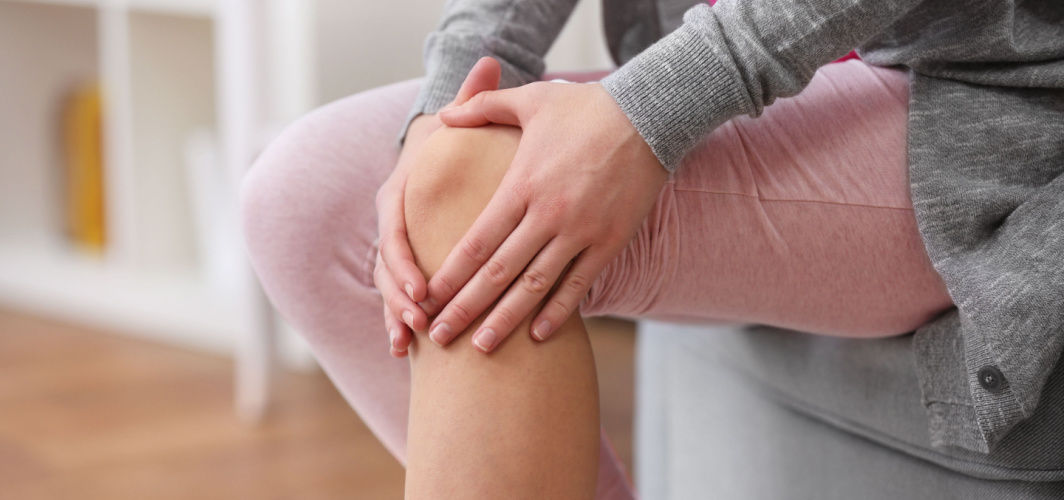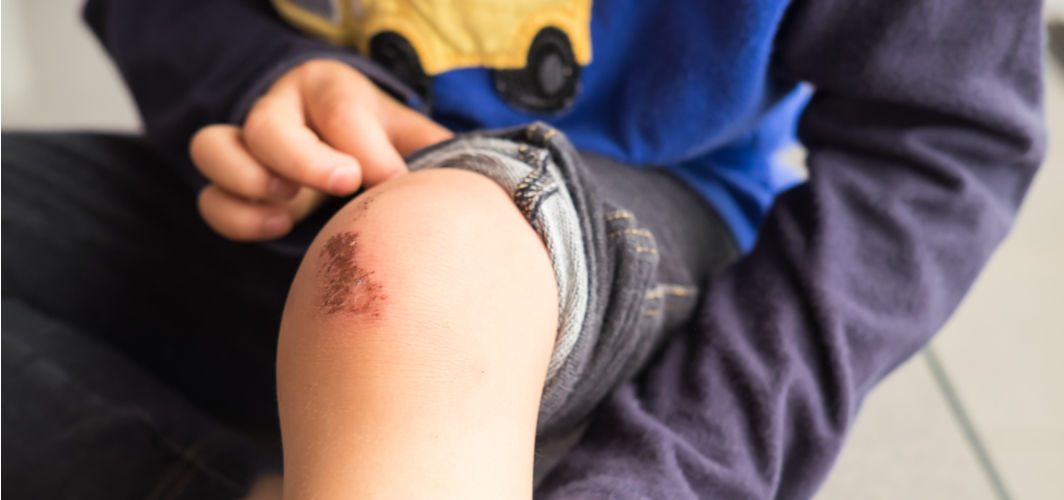Orthopedic Conditions
Joint Pain: How To Diagnose & Treat The Underlying Cause?
6 min read
By Apollo 24|7, Published on - 31 January 2023, Updated on - 09 March 2023
Share this article
0
0 like

Do you hear clicking sounds from your knee joint while sitting and standing? It can be a sign of early arthritis or may lead to joint pain. According to research, more than 350 million people around the globe are affected by arthritis. It is one of the reasons why so many people have joint pain issues.
Joint pain is common as you age. While some degree of pain may be considered normal, it is essential to address it promptly to prevent it from becoming chronic. Exercise and precautions can help manage joint pain and improve overall joint health. Seek medical advice if your joint pain persists or accompanies other symptoms.
What is Joint Pain?
Joint pain is a condition of joint inflammation that causes discomfort in different parts of the body, like the feet, hips, hands, spine, and knees. It is an umbrella term for 100 diseases affecting joints, tissues surrounding joints, and other connective tissues. People with arthritis experience stiffness, soreness, or aches in their joints.
Constant pain and discomfort can impact the quality of life, including the inability to perform even basic tasks.
How Is the Reason Behind Joint Pain Diagnosed?
Most likely, your doctor will do a physical examination. Also, you'll be asked extensively about your joint pain. This could reduce the range of possible causes. To detect joint deterioration brought on by arthritis, a joint X-ray may be required.
Your doctor may request a blood test to check for certain autoimmune disorders if they feel there may be another cause. They might also ask for a complete blood count or a sedimentation rate test to gauge the body's level of inflammation.
When we talk about joint pain, we usually refer to arthritis. But, besides arthritis, there can also be other joint pain causes. So let’s have a look.
1. Arthritis
Arthritis is the most common cause of joint pain. It is a medical condition that indicates swelling and tenderness in a joint. There are two types of arthritis:
- Osteoarthritis (OA): It is a painful joint inflammation caused by mechanical wear and tear of the cartilage that covers the bones in a joint. The knees are the commonly affected joints.
- Rheumatoid Arthritis (RA): It is a condition in which joint pain is caused by a hyperactive immune system attacking and damaging your joints. The small joints of fingers are affected the most.
2. Tendinitis
Tendinitis is an inflammation of a tendon, a fibrous cord connecting muscle to bone. It causes pain, swelling and tenderness around a joint.
3. Gout
Gout is arthritis caused by the buildup of uric acid crystals in the joints. It causes sudden, severe pain, redness, and swelling in affected joints. Risk factors include obesity, high alcohol consumption, and a high-purine diet.
4. Rickets
Rickets is a condition that weakens bones, causing them to deform and become prone to fractures. A deficiency of vitamin D, calcium, or phosphate causes it. Symptoms include bowed legs, raspy voices, and a curved spine.
5. Osteoporosis
Osteoporosis is a condition that weakens bones, making them more fragile and prone to fractures. A loss of bone density and mass causes it. Risk factors are ageing, menopause, and low calcium intake. Symptoms include back pain, stooped posture, and frequent fractures.
Remedies for Joint Pain
The remedies for alleviating joint pain range from home-care solutions to medical interventions. These are discussed below:
Home Remedies
1. Try to maintain a healthy weight. Being overweight puts strain on your joints, which can cause pain and swelling.
2. Stay active by following a physical exercise routine. It will keep your joints busy, flexible, and healthy.
3. Don’t forget to stretch before exercising to prepare your body, especially your joints, for any motion.
4. If you have joint pain that is not caused by arthritis, you can try some home remedies such as:
- Taking over-the-counter anti-inflammatory medicines
- Taking warm baths
- Applying a heating pad or ice pack
- Using a lotion and trying self-massaging
- Consuming probiotic supplements
- Trying a gluten-free diet
- Reducing sugar and salt intake
- Exercising regularly
Dr Senthil Kamalasekaran, an orthopaedic surgeon associated with Apollo 24|7, says, “to manage joint pain at home, one should rest the affected joint and ice it in the first 24-48 hours of the injury. Avoid excess use of the joint when the joint is inflamed. Therefore, avoid playing sports, going on treks or gym activities until you recover. If the movement is painful splint the joint using a support such as an arm sling or a knee brace. Simple analgesia may help but always consult your doctor before starting medications.”
Treatment
Apart from home remedies, some treatment plans are advised by orthopaedists for joint pain.
- Physical therapy to increase joint flexibility and relieve pain
- Supportive aids (belts or braces) to reduce pressure
- Steroid injections that provide short-term pain relief
- Painkillers to ease joint pain
- Antidepressants that promote sleep in patients who can’t sleep due to joint pain
- Surgery in cases of severe joint damage
Your doctor might recommend a Joint Replacement surgery if none of the above-mentioned treatments proves effective.
There are numerous causes of joint pain other than arthritis that need individual treatment approaches and usually consist of medications, palliative (terminal care), surgery, and activity modifications. While over-the-counter medications can help ease pain, one should always consult a doctor.
Don't Let Your Joint Pain Worsen!
Due to progressive joint pain, you may find it challenging to move around, perform daily activities, and sleep peacefully at night. You can prevent joint pain with optimal exercise, nutritious food, adequate sleep, and hydration. However, worsening joint pain with fever, swelling, and fatigue are signs that you should not ignore and seek medical help immediately.
Consult Dr Senthil Kamalasekaran
FAQs
1. Which vitamin helps with joint pain?
Vitamin D is essential for the proper functioning of bones and joints, and its anti-inflammatory properties can help ease joint pain.
2. Which fruits are good for joint pain?
Fruits rich in vitamin C and lycopene, like tomatoes, blueberries, blackberries, strawberries, oranges, lime, and grapefruits, are beneficial for joint pain.
3. How do you strengthen joints?
Regular exercises, good posture, and hydration with a healthy diet can strengthen joints.
4. How can you rebuild cartilage naturally?
Foods that help rebuild your damaged cartilage in joints include legumes, oranges, pomegranates, green tea, brown rice, and nuts.
5. Which disorders can give you joint pain?
Many disorders may give you joint pain, the most common being osteoarthritis and rheumatoid arthritis.
If you experience worsening joint pain, consult our Arthritis experts at Apollo 24|7 app for further treatment.
Consult Dr Senthil Kamalasekaran
Medically reviewed by Dr Sonia Bhatt.
Orthopedic Conditions
Leave Comment
Recommended for you

Orthopedic Conditions
Surprising but True! A Small Wound Can Result In Severe Bone Infection. Know how
Osteomyelitis is a severe bone infection that can destroy bone tissue. It occurs when an open wound exposes the bone to Staphylococcus aureus, a type of bacteria.

Orthopedic Conditions
How Smoking Affects Musculoskeletal Health
Smoking is detrimental to musculoskeletal health and people may experience lower back and joint pains without realizing that smoking could be one of the causes.

Orthopedic Conditions
Scoliosis: Are You Struggling with a Curved Back?
Scoliosis is a condition characterized by curvature of the spine. It causes twisting or rotation of the spinal bones resulting in a sideways curve.
Subscribe
Sign up for our free Health Library Daily Newsletter
Get doctor-approved health tips, news, and more.
Visual Stories

Natural Ways to Get Relief from Arthritis
Tap to continue exploring
Recommended for you

Orthopedic Conditions
Surprising but True! A Small Wound Can Result In Severe Bone Infection. Know how
Osteomyelitis is a severe bone infection that can destroy bone tissue. It occurs when an open wound exposes the bone to Staphylococcus aureus, a type of bacteria.

Orthopedic Conditions
How Smoking Affects Musculoskeletal Health
Smoking is detrimental to musculoskeletal health and people may experience lower back and joint pains without realizing that smoking could be one of the causes.

Orthopedic Conditions
Scoliosis: Are You Struggling with a Curved Back?
Scoliosis is a condition characterized by curvature of the spine. It causes twisting or rotation of the spinal bones resulting in a sideways curve.